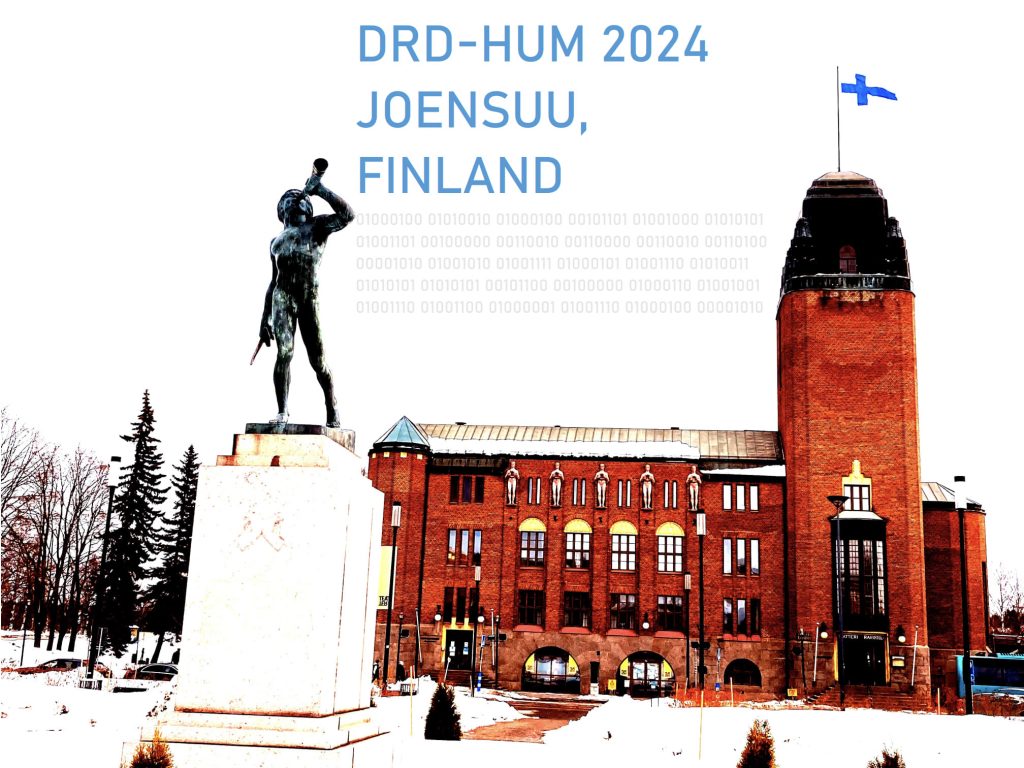Plenary speakers
Katherine Bode
Professor of Literary and Textual Studies
ARC Future Fellow
College of Arts and Social Sciences, Australian National University
https://researchers.anu.edu.au/researchers/bode-k
Wednesday 11/12/2024 at 09:30 https://uef.zoom.us/j/65584043464
How I went from mining to constructing to making literary data
This paper describes how, in my data work, I went from being certain, to being uncertain, to understanding that un/certainties have nothing to do with the messy realities of textual practices. Alternatively, this paper tells the story of the past fifteen years of my work with data, and how I went from presuming its objectivity, to proclaiming its subjectivity, to exploring its performativity. In the process, I raise some conceptual and practical problems with the representational logic that organizes our thinking about (and with) data, and I suggest making as a paradigm for engaging with digital research data in the age of artificial intelligence. In considering the value/s of data work for the human sciences, I ask what we give up and what we gain if we refuse samples, biases, accuracy, transparency, and results, and instead approaching data making as a practice of making that values attention to detail, responsiveness, creativity, responsibility, trust, and care.
Anna Foka
Professor of Digital Humanities
Centre for Digital Humanities, Department of Archival science, Library & information science, and Museum & heritage studies (ALM), Uppsala University, Sweden
https://www.katalog.uu.se/profile/?id=N18-926
Tuesday 10/12/2024 at 13:20 https://uef.zoom.us/j/69713571401
Tracing the Bias Loop: Data, Culture, and Society in the era of Artificial Intelligence
Artificial Intelligence (AI) is expanding beyond the realm of computer science, significantly impacting various industries and facets of society. AI and Machine Learning are revolutionizing the fields of computer science and engineering, making professionals in these areas highly sought after. The future of AI is dynamic, already profoundly influencing education, professions, and society. However, there is a growing awareness of the dangers of over-relying on AI for every challenge. In this context, I advocate for embracing AI with a societal and humanistic sensibility. My focus is on the Archives, Libraries, and Museums (ALM) sector. Traditionally, professional decisions in ALM have been made by educated humans using their best judgment. However, machines are becoming increasingly influential in performing these tasks. The quality of machine decision-making is closely tied to the quality of the data and the parameters selected for classification. Using cultural heritage collections as an example, I discuss how AI offers new opportunities for access and engagement but also risks perpetuating historical biases embedded in these collections. I emphasize the importance of interdisciplinary collaboration among cultural heritage professionals, data scientists, and social scientists to identify and mitigate bias. We need to think together with machines to adopt a holistic approach to bias mitigation, integrating both technical and non-technical solutions to ensure that AI technologies contribute to a more inclusive society. I conclude with recommendations for future education, research, and practice, highlighting the need for ongoing monitoring and interdisciplinary collaboration to address the complexities of bias in AI applications within the cultural and creative industries, as well as in the training of professionals in the ALM sector.
Michaela Mahlberg
Professor of Digital Humanities and Head of Department of DHSS at the Friedrich Alexander Universität, Erlangen-Nürnberg. Michaela holds a Humboldt Professorship, Germany’s most valuable international research award.
https://michaelamahlberg.com/
Thursday 12/12/2024 at 12:40 https://uef.zoom.us/j/61826035771
Corpus linguistics for the digital age – Making sense of the world through language and stories
In today’s digital age, many areas of the humanities and social sciences have seen digital turns and there is plenty of innovation in methods and tools. Corpus linguistics is a discipline that aims to describe language on the basis of large sets of linguistic data. The study of large amounts of language data makes it possible to see patterns in language use. Treating language as data and identifying patterns brings linguistics increasingly closer to data sciences. At the same time, technological advancements and especially developments in AI raise questions about the relationship between patterns in data and human creativity. In this talk, I want to argue that – in the digital age – the focus of corpus linguistics needs to shift from developing digitally supported methods to developing theoretical foundations for language analysis. People use language to act, to do things and to interact with one another. Language is used to tell the stories and create the narratives that shape our society, our culture and our reality. It is time to consider how insights from corpus linguistics can shed light on the relationship between patterns and creativity in language use. To address this question, it is also crucial to look at how fictional stories and real-world narratives are interconnected. A better understanding of how people use language and stories to make sense of the world will be vital to tackle the challenges that humanity faces at the present time.
Tony McEnery
Distinguished Professor of English Language and Linguistics
Linguistics and English Language, University of Lancaster, UK
https://www.lancaster.ac.uk/linguistics/about/people/tony-mcenery
Tuesday 11/12/2024 at 15:30 https://uef.zoom.us/j/66305980257
How Corpus Data is Interpreted and Corpus Analyses are Contextualised
What does it mean to interpret corpus data? In this talk I will look at how corpus analyses are contextualised. Beginning from the position that a corpus is self contained, I will proceed, through a series of case studies, to show how the inclusion of context, in various forms, is essential to our understanding of both what a corpus is and what we understand when we analyse it. While the case studies will all be based on English, they will come from different centuries and social contexts and will look at a range of modes of production and registers. The degree to which the observations flex as we move between different levels of linguistic interpretation will be considered also. The talk will conclude by urging all corpus users to consider as broad a context as possible in their analyses.
